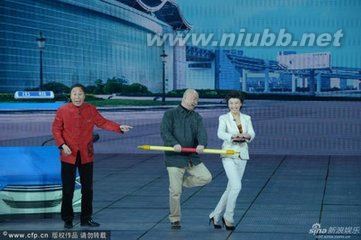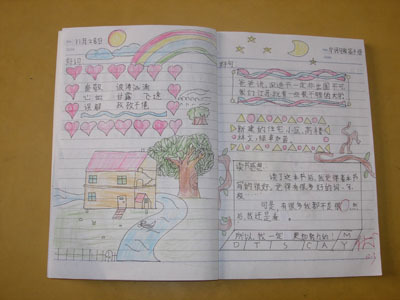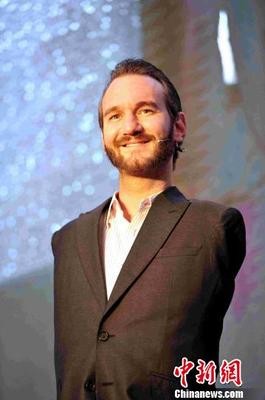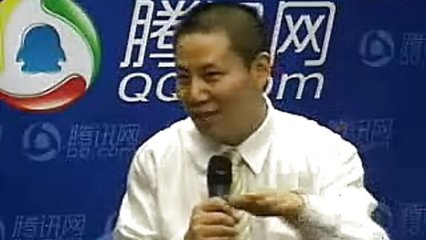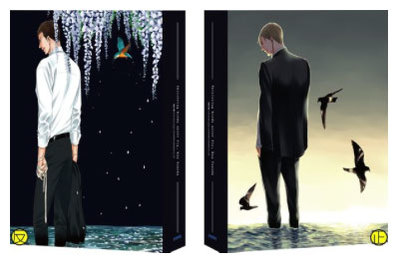标 题:澄清《弯而不折》的事实 傅平
发信站: BBS 未名空间站 (Wed Feb 6 15:49:28 2013,美东)
澄清《弯而不折》的事实
傅平
一篇关于我的书《弯曲,不会折断》,由“福布斯”发布,并且在ForbesChina.com(这个链接是谷歌的英文翻译)上被翻译成中文。这个翻译在措辞上有几处不准确。之后,这些错误在新的发布告示中已经得到纠正。与此同时,中国的博客方舟子发布了一个故事,他质疑我的信誉。约翰•肯尼迪也在中国南方早报的博客中给予回应。虽然方及肯尼迪的评论正确地引用了“福布斯”文章的原始版本,但这篇原始版本所提供的信息却是不准确的。实际上他们应该以我的书(指《弯曲,不会折断》)为准。我很愿意回应他们和其他批评者的意见,这些意见来自各个网站,都攻击我的故事的真实性。
问:为什么你说你在“文革”期间被劳教?
我并没有说或写,我是被劳教,我说,我住了10年的南京航空航天大学校园在大学宿舍。中国儿童不会在劳教所。我也没有说我是一个工厂的工人。我说毛泽东要我们向工农兵学习。
问:如果你在10年的“文化大革命”中,被剥夺了接受教育的权利,那么大学恢复招生以后,你是如何被录取的?当时的录取率低于5%。你是个天才吗?
1972年以后,学校(应指中学)恢复(第128页)。我的学校位于南京的一个工业区边缘,那儿给我们开设少量的正规课程。我不间断地学习(页229-231)。我的家人,称我是“永远不知道熄灯的女孩。”(第231页)
至到1982年,都没有重新开设苏州大学。你怎么能在1977年上那所学校?
答:这是一个错字(第232页)。我参加了1977年和1978年的高考,并于1978年被录取。我进去的时候,这所学校被称为江苏技术师范学院。我离开之前,它的名称后来变更为苏州大学,它是在同一地点同一所大学。
问:在2010年的全国公共广播电台采访时,你说你看见红卫兵处决一个老师,把她的每个肢体捆绑到一个单独的马上,然后同时驱使每匹马向不同的方向运动,以肢解她的身体。在“文化大革命”期间,大卸八块,用四匹马是闻所未闻的,而且实施起来将是相当困难。这是一个几百年前的传说。
答:对这一天,在我的脑海里,我觉得是我看到了它。这是我的情感记忆。阅读方舟子的文章后,我觉得在这种特殊情况下,他的分析比我的记忆更加合理和准确。那时我只有8岁,而且刚刚(被迫)离开我的亲生父母和我的养父母,受到了巨大的创伤。在中国,(五马分尸)是个著名的成语,我成天做恶梦。
问:你声称你惨遭轮奸。轮奸不会在中国发生。
答:强奸是一件非常私人的事情,这肯定是发生了。我知道这是不是一场幻觉。我有疤痕。我的身体上有伤痕。
问:在“福布斯”,你说你在苏州大学写的本科论文是关于“在中国农村地区的溺杀女婴的做法”。你的研究得到全国性的新闻报道,然后你被判处流放的结果。
注:这是“福布斯”的编辑纠错告示已经指明:我发表了我的论文“在中国农村地区溺杀女婴”已得到纠正。
答:我的意思是我是悄然离开(中国?)。我并没有说我的研究被发表,它从来也没有出版。(只是)有人告诉我,我被逮捕的原因是因为我的研究(本书第257页)。
问:在在2005年INC杂志的文章中,您描述您的研究结果“溺杀女婴”由文汇报和人民日报发表,导致来自世界各地(对中国政府的)谴责,联合国也实行制裁。结果你被扔进了监狱。但检索当时的人民日报,没有任何关于在中国农村地区的溺杀女婴报道。
答:我记得以前看过一篇报纸社论,在1982年,呼吁性别平等。这不是一个新闻文章,也不是我写的,我不知道它和我的研究有什么关系(页253-255)。在写这本书时,我没有写关于这篇论文的事,因为我不能确定。不过,我认为这就是我读的社论(文章),因为它登在最公众和最官方报纸上。没有看过我的书的人假设我向报社提交了研究(论文),或我发表了论文,实际我在书中并没有提及此事。*译者注,这一段傅平似乎有点前言不答后语,很难翻。
问:为什么没有人在中国知道,联合国将在1981年对中国制裁?你是怎么知道的?
A:我等待护照时,听说联合国制裁的消息。有人告诉我,联合国对这个问题感到不满。一个简单的Web搜索显示:美国的记者史蒂文W.毛思迪在1981年写了关于在中国溺杀女婴的报道。他的书于1984年出版,被称为《破碎的地球》。这一年,我正好在等我的护照。认识到这一点,就能明白我悄然离开(中国是合情合理的。还有什么比这个问题吸引更多的关注?据洛杉矶时报,,毛思迪成功地游说乔治•W•布什对中国削减联合国经费。我的经历和他的故事和时间表是一致的。
问:你说你走在校园里时,突然一个黑色的头套扔在你的头上,然后你被塞进一辆汽车逮捕了?
答:是的,是这么回事。我再也没有回到课堂,也没有毕业。当局告诉我的同学:我精神崩溃。在我被释放后,我被告知,在家呆着,不许乱说乱动(书,第255页,第258-259)。我原本打算去南京读比较文学的研究生,在那种情况下当然不可能。
问:你说你被扣押了3天,差点被判处劳教。幸亏(当局)决定把您流放(出国)。
答:(当局)要求我悄然离开,再也不能回来(本书第258页)。
问:你(当时)并不出名,却被驱逐出境而且驱逐到美国读书。一般只有非常突出的持不同政见者才有这种待遇。为什么?
答:正如我在书中(第257-261)描述,我被告知,我不得不离开中国,但没有具体的目标。我得到了学生签证,这是通过一个家在新墨西哥大学的朋友做担保,在第258-259页,我详细介绍我的申请过程,到国外生活,最后在美国定居。
问:很多中国留学生为了能够留在美国,想了各种办法。其中一个就是编造离奇的故事:在中国面临迫害,并申请政治避难。不管你的经历多奇特,美国人仍然相信它们是真实的。
答:我并没有申请政治庇护,我被明确告知不能引起人们的注意。
问:根据INC,你想在苏州大学学习工程或经济,但党分配给你学习英语。
答:我收到录取通知书是在1978年的秋天(这是一个错误,在那里写做1977年第232页)。通知我被分配到苏州大学中文系。Inc.magazine进行了编辑错误,我在中国的专业是中国文学,而不是英语。(第99页)
问:“福布斯”说:你来到美国知道只知道三个英语单词的,但也有好些不同的组合:公司,请,谢谢,帮助弯折,不易断裂:你好,谢谢你,帮助;NPR:谢谢你,帮,对不起。
答:在大学里,提供了英语学习班,但不是必修课的。我之前没有学过英语。英语水平为零,就像大多数美国人都知道几个西班牙语或法语单词。当我知道我要去美国后,我开始努力学习英语。但是我到达美国时,只记得几个单词。
问:在快速公司的故事图像里,你和其他的孩子都戴着红卫兵袖章,但你声称你不是一个红卫兵。
如果你放大该图片,仔细看看,就可以发现我的手臂上没有红色条带。这张照片是70年代末,我在学校的红卫兵旗帜前面照的。我在书中写道,1972年以后,环境变得比较宽松,但我也从来没加入红卫兵。
我的一个同学也回应了方舟子的文章。在他的博客中,他所说的与我书中写的是一致的。他肯定是我的同班同学。他对方的文章提出了意见,假设方的依据是在我的书中。这当然不对。我愿意回应。
问:你没有被劳教?
答:没有。我在本书中,没有说我在劳教所呆过。
问:你没有在1977年上大学。
答:说真的,我是在1978年,这是一个错字书。
问:如何能劳改营10年之久的吗?
他问这个问题的是以方舟子先生的博客为基础。这是一个错误的表述。我从来没有说我是在劳教所。 “福布斯”纠正了这个错误。
问:您没有公布你的研究,而且从未出版。
答:正确;我没有公布我的研究,也从来没有出版。我离开了学校。我和妈妈去学校,声称我是精神崩溃,以便我不会被发送到遥远的中国(第258页)(这是很有意思的回答,译者特将原文列在这里,以备有误。Ileft school; my mother and I went to the school and declared I hada mental breakdown so I would not be sent to remote China (page258))。你只是不知道我离开的真正原因。
我想说的是:我尊重“福布斯”,方舟子先生,和某同学(对不起,我不知道这个名字,因为他用了一个笔名)。民主意味着每个人都享有言论自由。批评不是诽谤,它是(坦诚)说话或寻求真理的一种形式。我欢迎建设性的批评。
Clarifying the Facts in Bend, Not Break
Ping Fu
Author, 'Bend, Not Break'
http://www.huffingtonpost.com/ping-fu/clarifying-the-facts-in-b
An article about my book, Bend, Not Break, which appeared in Forbesand was translated into Chinese for ForbesChina.com (this link isto a Google English translation), contained several inaccuracies inwording. The posts have since been corrected. Meanwhile, Chineseblogger Fang Zhouzi posted a
story in which he questioned my credibility, and John Kennedyreacted to that blog in the South China Morning Post. Thoughfactually correct based on the original version of the Forbesarticle, both Fang and Kennedy made comments based on inaccurateinformation, rather than on material actually printed in the book.I would like to respond to their comments, as well as the commentsof other critics who have since posted to various websitesattacking the authenticity of my story.
Why did you say you were in a labor camp during the CulturalRevolution?
I did not say or write that I was in a labor camp; I stated that Ilived for 10 years in a university dormitory on the NUAA campus.Chinese children don't get put in labor camps. I also did not say Iwas a factory worker. I said Mao wanted us to study and learn fromfarmers, soldiers and workers.
If you were deprived of an education for those 10 years of theCultural Revolution, and less than 5 percent of applicants wereaccepted when universities reopened, how did you get in? Were you aprodigy?
After 1972, school resumed (p. 128). We had few formal classes atmy school at the edge of Nanjing in an industrial area. I studiednonstop (pp. 229-231) and was known by my family as "the girl whonever turns off her lights." (p. 231)
Suzhou University did not reopen until 1982. How could you go therein 1977?
A: This is a typo in the book (p. 232). I took the college entranceexams in 1977 and 1978, and was admitted in 1978. When I entered, Ibelieve it was called Jiangsu Teachers College or Jiangsu TeachersUniversity. Its name changed to Suzhou University before I left; itwas the same university in the same location.
In a 2010 NPR interview, you say you saw Red Guards execute oneteacher by tying each limb to a separate horse and dismembering herby having each horse run simultaneously in a separate outwarddirection. During the Cultural Revolution, dismemberment using fourhorses was unheard of and would have been quite difficult. This wasa legend from several hundred years ago.
To this day, in my mind, I think I saw it. That is my emotionalmemory of it. After reading Fang's post, I think in this particularcase that his analysis is more rational and accurate than mymemory. Those first weeks after having been separated from both mybirth parents and my adoptive parents were so traumatic, and I wasonly eight years old. There is a famous phrase in China for thiskilling; I had many nightmares about it.
You claim you were brutally gang-raped. Gang rape doesn't happen inChina.
A: Rape is a very private matter and this definitely happened. Iknow this was not a hallucination. I have scars. My body wasbroken.
In the Forbes piece, you say you wrote your undergrad thesis atSuzhou University on the practice of female infanticide in ruralChina. Your research received nationwide press coverage at thetime, and you were sentenced to exile as a result.
NOTE: The Forbes editorial mistake noting that I "published mythesis" on female infanticide in rural China has beencorrected.
I said I was asked to leave quietly. I did not say my research waspublished; it was never published. I was told that the reason I wasarrested was because of my research (book p. 257).
In the 2005 Inc. Magazine article, you explained that your findingson female infanticide were later covered by Shanghai's Wen Hui Baonewspaper and later then by People's Daily, resulting incondemnation from around the world, sanctions imposed by the UN,and you getting tossed into prison. People's Daily archives for theperiod when your research would've been published have nothingregarding female infanticide in rural China.
I remember reading an editorial in a newspaper in 1982 that calledfor gender equality. It was not a news article and not written byme, and I didn't know it had anything to do with my research (pp.253-255). When writing the book, I did not name the paper, since Iwasn't certain. However, I think that is where I read the editorialbecause it was the most popular and official newspaper. People whohave not read my book made assumptions that I submitted theresearch to the newspaper, or I published the thesis, but that wasnot how I described it in the book.
Why does nobody else in China know that the UN placed sanctions onChina in 1981? And how do you know that?
A: I heard about the sanctions in China while awaiting my passport.I was told that the UN was unhappy about this issue. A quick websearch shows that the American-based journalist Steven W. Mosherwrote about female infanticide in China in 1981. His book, calledBroken Earth, was published in 1984 -- the same year I was waitingfor my passport. Knowing this, it makes sense that I was asked toleave quietly. Anything else would have drawn more attention to theissue. According to the Los Angeles Times, Mosher successfullylobbied George W. Bush to cut UN funding for China. His story andthe timeline are consistent with my experience.
You say you were walking on campus when a black bag was suddenlythrown over your head and you were stuffed into a car before beingarrested?
Yes, this is how it happened. I never returned to classes and I didnot graduate. My classmates were told that I had a mentalbreakdown. After my release, I did what I was told and laid low athome (book, p. 255, pp. 258-259). I originally had been planning togo to graduate school to study
comparative literature in Nanjing, but that could not happen due tothe circumstances.
You said you were held three days and narrowly avoided beingsentenced to reform through labor when authorities decided insteadto send you into exile.
A: I was asked to leave quietly and never come back again (book p.258).
Why would you, an unknown, be deported/expelled to study in theU.S., a treatment reserved for very prominent dissidents?
As I describe in the book (pp. 257-261), I was told that I had toleave China, but not given a specific destination. I got a studentvisa, which was secured through a family friend at the Universityof New Mexico. On pages 258-259, I detail my application process tolive abroad and how I ended up in America.
Chinese international students had many ways of being able to stayin the United States. One of those was to fabricate bizarre talesof having faced persecution in China and apply for politicalasylum. It didn't matter how fantastic you made your experiences,Americans would still believe them to be true.
I didn't apply for political asylum; I was explicitly told not toattract attention.
According to Inc., you arrived at Suzhou University wanting tostudy engineering or business, but the Party assigned you to studyEnglish.
When the acceptance letter came in the fall of 1978 (this is a typoin the book, where it reads 1977 on p 232), it said that I had beenassigned to study literature at Suzhou University. Inc.magazinemade an editorial error on my major in China; I majored in Chineseliterature, not in English literature. (p. 99)
Forbes said you arrived in the United States knowing only threewords of English, yet there are different sets of those first threewords: Inc.: Please, thank you, help; Bend, Not Break: Thank you,hello, help; NPR: Thank you, help, excuse me.
In college, English language classes were offered, but notrequired. I did not study English ever. I had "level zero" English,just like most Americans know a few words of Spanish or French. Itried to learn more English when I knew I was going to the U.S.,but when I arrived, I only remembered a few.
In the Fast Company story image, you and other kids are wearing RedGuard armbands under the Red Guard flag, yet you claim you were nota Red Guard.
If you zoom into that picture, you only need to look closely to seeI have no red band on my arm. The image was taken in front of a RedGuard flag at the school that I attended in the late 70s. I wrotein the book that the situation got better after 1972. Still, I wasnever a Red Guard.
One of my classmates also responded to Fang's article on his blog.What he says is consistent with what I wrote in the book, so hemust be a classmate. He made comments based on Fang, assuming thatwhat Fang said was in the book, however it was not. I would like torespond.
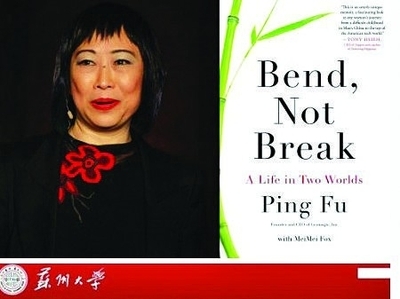
You weren't in a labor camp.
A: True, I did not say I was in a labor camp in the book, orever.
You did not go to college in 1977.
True, I went in 1978; that is a typo in the book.
How can the labor camp be 10 years long for you?
He asked this question based on Mr. Fang Zhouzi's blog, which wasan incorrect choice of words. I never said that I was at a laborcamp. Forbes corrected this error.
You did not publish your research and it was never published.
Correct; I did not publish my research and it was never published.I left school; my mother and I went to the school and declared Ihad a mental breakdown so I would not be sent to remote China (page258). You just didn't know the true reason I left.
I want to say that I respect Mr. Fang Zhouzi, Forbes, and theclassmate (sorry, I do not know the name since he used a pen name).Democracy means everyone is entitled to freedom of expression.Criticism is not a form of defamation; it is a form of speaking orseeking truth. I welcome constructive criticism.
发信人: powerforward (抽敏感詞的筋), 信区: WaterWorld
标 题: Re:澄清《弯而不折》的事实 傅平
发信站: BBS 未名空间站 (Wed Feb 6 18:41:02 2013,美东)
媒體誇大其辭是有的。傅蘋本身也許有記憶失誤的地方,也有過度渲染的地方。
但是質疑別人被強暴的經歷,我覺得是一種讓人鄙視的行為。
发信人: OverCloud (天马行空), 信区: WaterWorld
标 题: Re:澄清《弯而不折》的事实 傅平
发信站: BBS 未名空间站 (Wed Feb 6 22:25:48 2013,美东)
她撒了100个谎,你还相信她剩下的还有真相吗?
发信人: bentian (朴素的本田), 信区: WaterWorld
标 题: Re:澄清《弯而不折》的事实 傅平
发信站: BBS 未名空间站 (Thu Feb 7 00:06:51 2013,美东)
记忆扭曲啥的就算过了,傅苹亲友团能不能问一下傅苹,为什么明明她同学的博客在反驳讽刺傅苹,傅苹还能硬拗说她同学的说法constistentwith傅苹的说法?
如果说以前受害太深所以人格记忆啥的都扭曲了,现在傅苹算是出人头地意气风发,人格啥的应该比较健全了,为什么还像以前一样硬拗?
亲友团请转告傅苹:这事如果不做一个清楚的道歉,没有人会放过她;她将无法在华人圈里立足。
 爱华网
爱华网